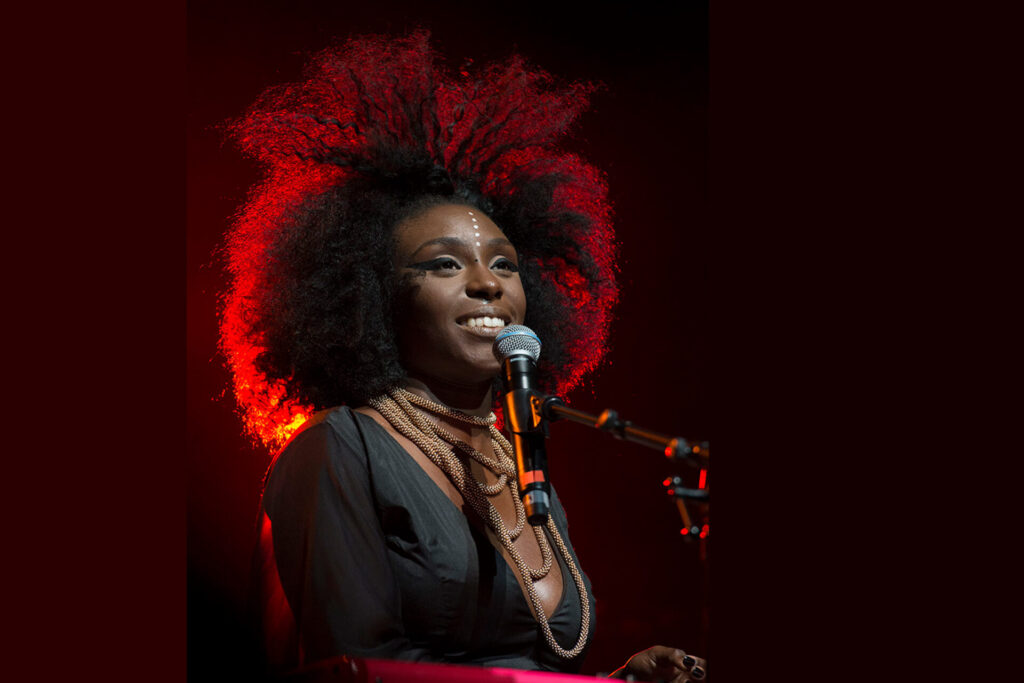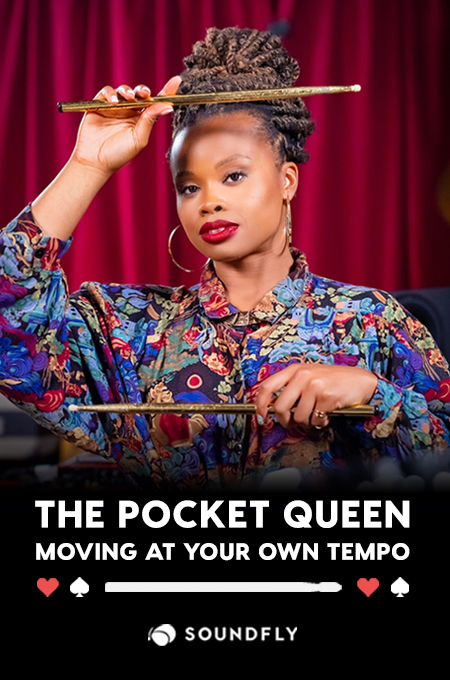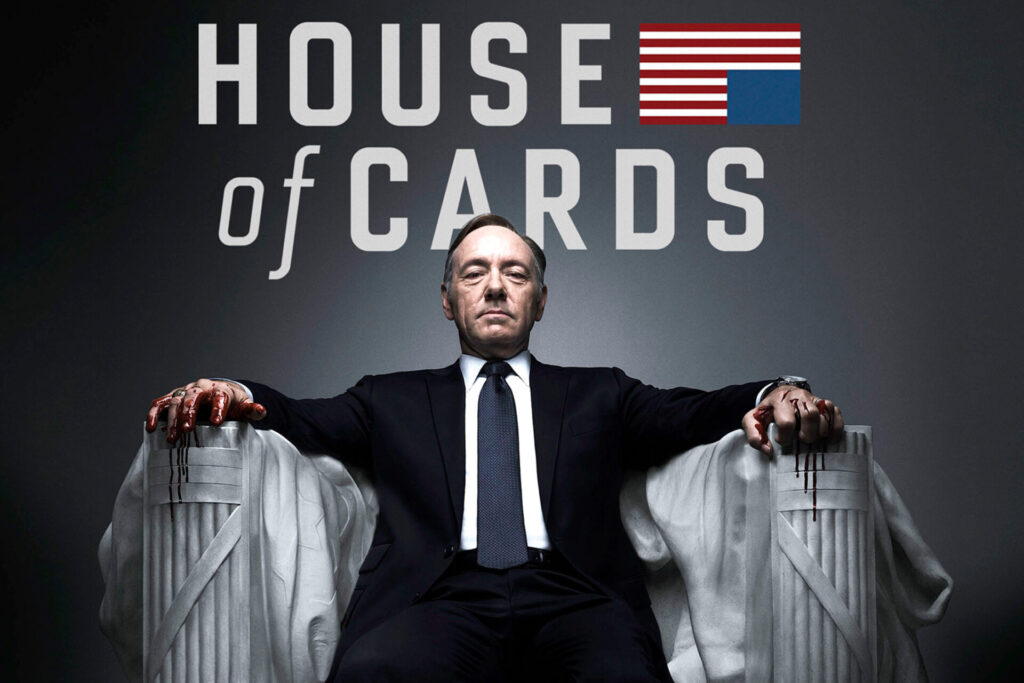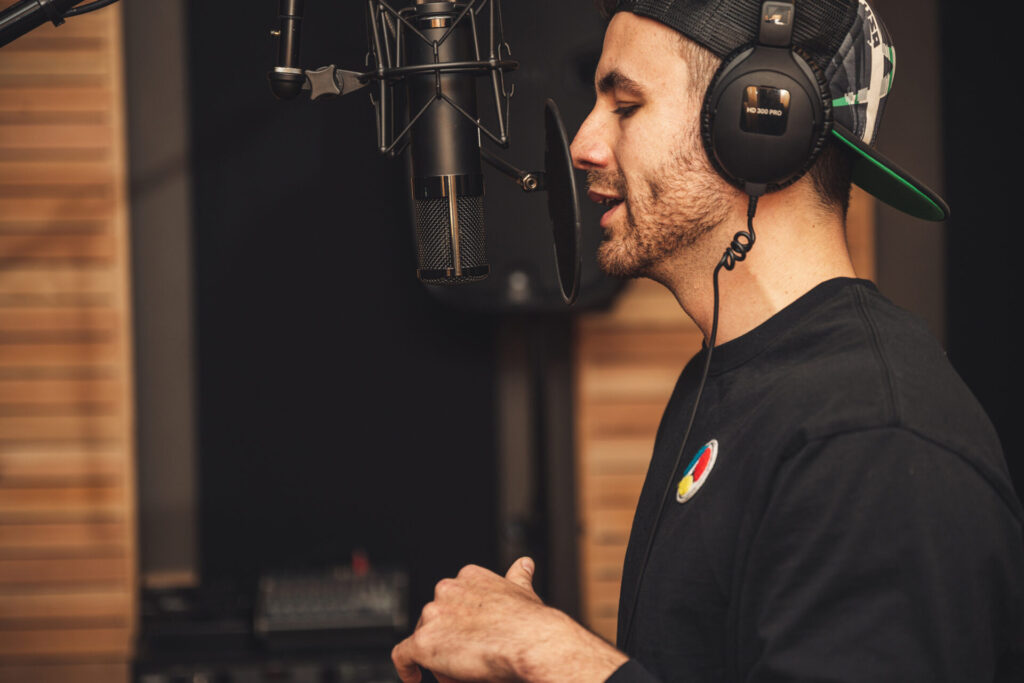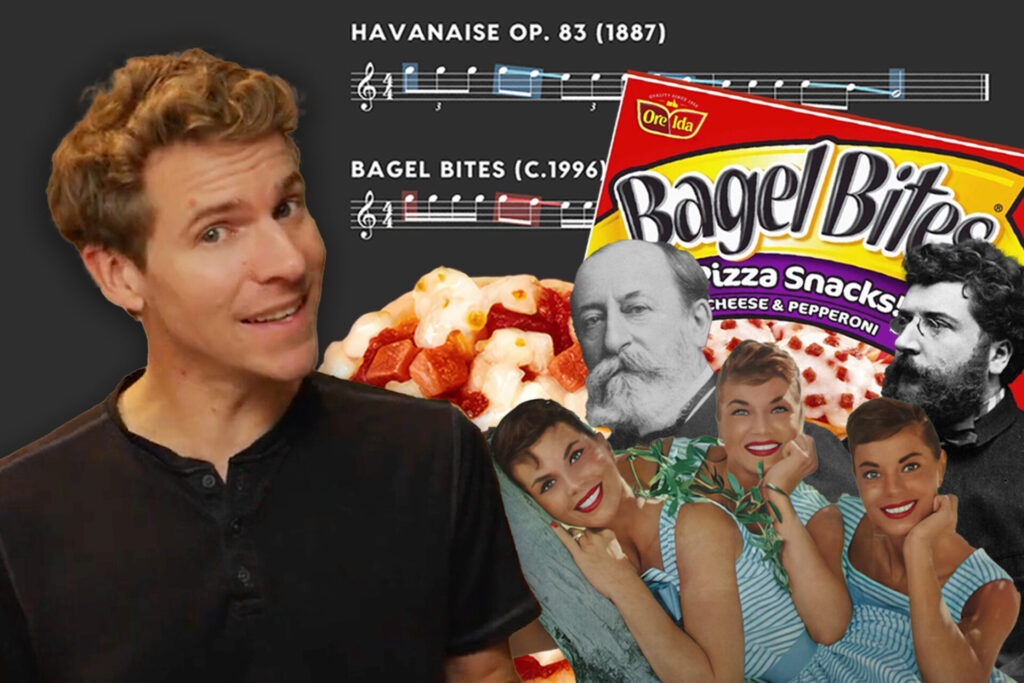+ Combine theory, improvisation, and jazzy hip-hop, and improve your piano chops with Grammy-winner Kiefer in Kiefer: Keys, Chords, & Beats.
Ten years ago, British singer-songwriter-pianist-producer Laura Mvula released her first album, Sing to the Moon, which launched her into the UK top ten as a heady mix of prodigious talent and female empowerment. She was being heralded as the successor to Nina Simone or Billie Holiday, the “new Adele” or even Amy Winehouse and right at home on the Top Ten UK soul train.
Or so RCA hoped.
The thing is, Laura marches to the beat of her own drum.
Growing up in a household with educator parents, ex-pats from St. Kitts and Jamaica respectively, Laura earned her musical stripes singing gospel in church choirs and jazz/neo-soul ensembles and taking piano and violin lessons. She graduated in 2008 with a composition degree from the Royal Birmingham Conservatoire. And it shows.
Sing to the Moon charted #9 in the UK, #16 in my country (NZ) and #173 in the US. So, a foot in the door and awards a-plenty in her domestic market. Critical responses were dominated by accolades for her significant stage presence, her complex and thoughtful arrangements, her sense of melody and movement plus the cracking dance-led videos.
Lyrically though, a lukewarm current ran through reviews.
“Once she rids her work of thematic repetition and lyrical mundanity, she’ll be on to something truly special.” – Pitchfork
“The metaphors in her lyrics are perfectly accessible: moon, stars, mountains, flying, falling, overcoming. If anything, they can be a little too pat.” – The Guardian
Yet, let’s actually take a closer look at those very lyrics. Because, I, like you, may beg to differ…
Listen to the well-received lead single from Sing to the Moon, “Green Garden.”
It’s her most successful song to date and her beautiful live television debut on The Graham Norton Show in 2013.
In the lyrics, Mvula eschews end rhyme but stacks repeating patterns of stressed and unstressed syllables, especially in the front phrases of the two verses. She’s calling and responding all by herself.
Take me outside, sit in a green garden
Nobody out there, but it’s okay now
Bathe in the sunlight, the money frame falls
Take me outside, sit in a green garden
And I’ll fly on the wings of a butterfly
High as a tree tall and down again
With my back down, taking my shoes off
Walk on a carpet, of green velvet
The song’s title sits in the first and last line of verse one, and it’s lush with alliterative consonance (gr–n, g-r-n). There’s a distinctive approach to word order (“high as a tree tall”) and a curious image (“the money frame falls”) but the metaphor of the green garden as a place that refreshes, is pretty clear and it runs into a lovely melodic hook where part of the title repeats.
Dance in my garden like we used to,
Dance in my garden like we used to.
There’s a lot going on here.
+ Read more on Flypaper: “Chorus Impact Accentuators, Explained.”
By the time we’re two minutes in, you will have heard all the lyrics, but the arrangements continue to develop with the first verse repeated with a freer, vocal phrasing.
The lyrically direct coda which was introduced in the background earlier now takes center stage, but doesn’t particularly support the song’s intention.
I’ll go wherever you go,
Wherever you take me, I’ll go
I’ll go wherever you go,
Wherever you take me, I’ll go.
Mvula uses lyrical phrases and vocables (oo-wah, oo-wah) like pieces of mosaic in her dense and detailed harmonies and in her call and response phrasing. But her idiosyncratic song structure deviates from pretty much anything else charting at the time, and the way what narrative there is has been rolled out by the halfway mark, contributes to a certain curious sense of stasis.
+ Enjoy access to Soundfly’s suite of artist-led music learning content for only $12/month or $96/year with our new lower price membership. Join today!

Her very first track release, “She” explored the effort of lifelong female endurance, especially those of African-Caribbean descent and while the title is “She,” the hook is firmly: “don’t stop/she don’t stop.”
Once again, there are two verses of four lines each with little end rhyme, the title repeated with a verb anaphorically at the start of most lines (“she walked, she wondered, she knew”) and other words repeated (“time”). It’s patterning but it’s unstable and unsettling.
It’s a rhetoric device but it’s atypical in chart pop.
She walked towards you with her head down low
She wondered if there’s a way out of the blue
Who’s gonna take her home this time
She knew that this time wouldn’t be the last time
There she waits looking for a saviour,
Someone to save her from her dying self
Always taking ten steps back and one step forward,
She’s tired, but she don’t stop
However, the chorus intensifies the repetition.
She don’t stop, she don’t stop, she don’t stop
She don’t stop, she don’t stop, she don’t stop
The song is powerful and delicate at the same time, the third and last verse tripping over trying.
Every day she stood hoping for a new light
She closed her eyes and she heard a small voice say
You don’t stop, no, you belong to me
She cried, maybe it’s too late.
Mvula’s combination of less familiar song structures and lyric writing perhaps brought her in conflict with her record label and while she seemed to respond defiantly with a more direct and personal thematic in her second album, The Dreaming Room, she was unceremoniously dumped after sales didn’t hit expected targets.
This “difficult second album” still charted in UK at #21 (FYI) and won the Ivor Novello award.
She even preemptively told the world she was going to “stand and fight” and “play (her) own damn tune” in the track “That’s Alright,” which appeared on her first album. So, yeah, people should’ve seen that coming!
I will never be what you want and that’s alright
‘Cause my skin ain’t light and my body ain’t tight
And that’s alright
But if I might, I must stand and fight
I will never be what you want and that’s alright
I play my own damn tune, I shine like the moon
And very soon, I’ll soon fly over you
And what you gonna do when I fly over you.
Moving forward, Mvula’s single off her second album, entitled “Phenomenal Woman,” equally references resistance.
takes its title from the pushback stand-up poem by Maya Angelou (note the screenshot of Mvula’s music video pays homage with its very own caged bird).
Reading Maya Angelou, soul searching, supporting David Byrne on his American Utopia tour, being thrilled by a Christine and The Queens show, Mvula regained the force she needed to dig in for her third album, Pink Noise, released on her new label Atlantic Records in 2021. It was described as “a career-defining return that most artists can only dream of; pure synth-pop ecstasy.”
But Mvula spoke of the effort and mental requirements to get back on the pony. “I was drained and so unsure about where to go next,” she says frankly, when asked about the split from her former label:
“That time of transition caused me to ask a lot of questions….I’d been dropped for a reason. I’d gotten comfy. When I saw that gig, it reminded me of the importance of doing things because you love them; the importance of joy in music and of following instincts not trends, which is something I’ve always wrestled with. So I decided that I was going to draw on my childhood – which I spent constantly raiding my mum’s wardrobe – and all the pop icons that I grew up listening to: Prince, Michael and Janet Jackson, Earth, Wind and Fire, Peter Gabriel, Whitney.
My sister said to me…, this is the album that you’ve always wanted to make. And I was like, you’re so right. Like, this is my shit.”
The album’s lead single “Got Me” sure enough feels right back in an ’80s car wash.
Verse lyrics rumble syncopated on the same note, give or take, full of assonant o’s. but the vowels open right out in the pre-chorus to a’s as the melody rises and the chorus is a disco smash with liquid m’s and n’s galore, (“tremblin’ in the palm of your hand”).
Mvula is really sculpting her words to make the most of every syllable and it bounces.
Verse
Woke up this mornin’ with your touch on my mind
Your kisses take me on some heavenly ride
Go with me, go with you, no limit, no
I don’t regret nothing, with you I belong.
Pre-Chorus
Do what you want to do
Say what you want to say
Taking control of me
Don’t make it too easy for me
Do what you want to do
Say what you want to say
Taking control of me
Don’t make it too easy for me.
Chorus
You got me
Tremblin’ in the palm of your hand
You got me
I’m a slave to the sound of your command
You got me (Do what you wanna do)
Tremblin’ in the palm of your hand (Do what you wanna do, baby you can do whatever you wanna do)
You got me (Do what you wanna do)
I’m a slave to the sound of your command (Do what you wanna do, baby you can do whatever you want).
Resilient and versatile, this accomplished musician surely has more to explore and more to say in future albums to come.
From her glorious orchestral arrangements to her barefaced reclamation of the keytar, welding sacred and secular, resisting and redefining pop convention to work on her terms, Mvula is truly phenomenal, and so are her lyrics.
Don’t stop here!
Continue learning with hundreds of lessons on songwriting, mixing, recording and production, composing, beat making, and more on Soundfly, with artist-led courses by Ryan Lott, Com Truise, Jlin, Kiefer, RJD2, and Kimbra: Vocal Creativity, Arranging, & Production.
